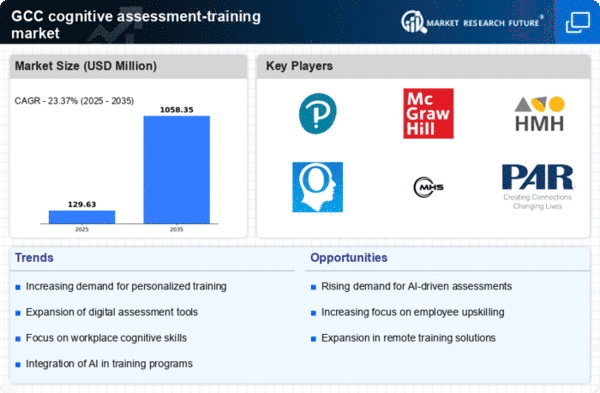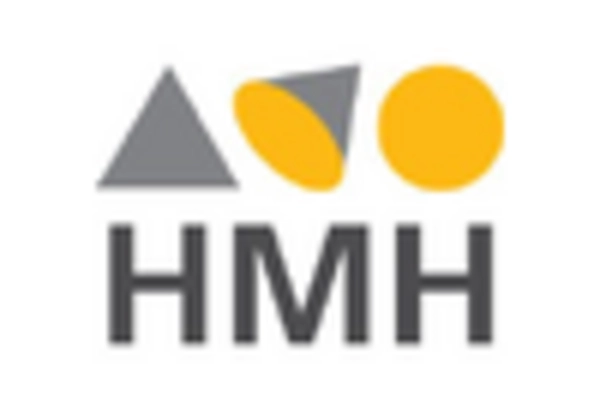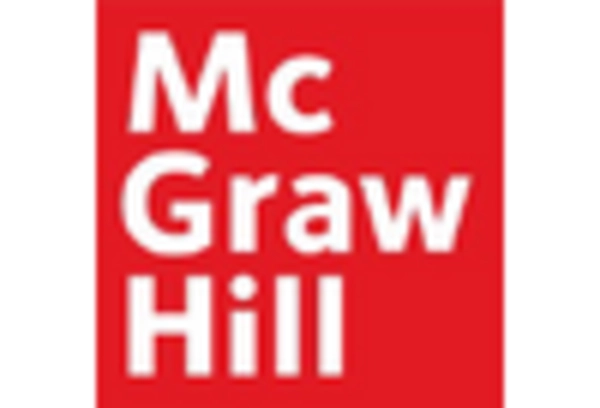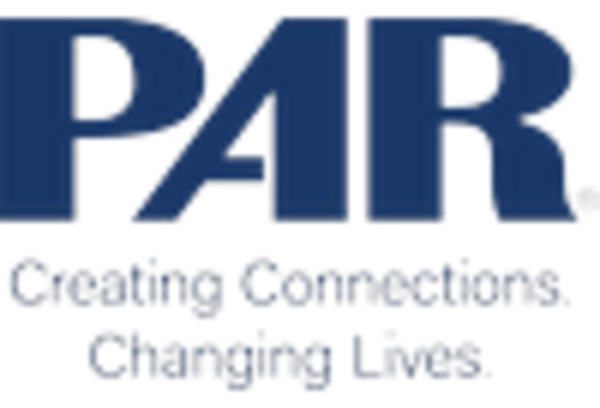Corporate Training and Development Programs
The rise of corporate training and development programs in the GCC is a key driver for the cognitive assessment-training market. Companies are increasingly recognizing the value of investing in employee development to maintain a competitive edge. Cognitive assessments are being utilized to identify skill gaps and tailor training programs accordingly. This trend is particularly evident in sectors such as finance and technology, where cognitive skills are critical for success. The cognitive assessment-training market is projected to expand as organizations allocate more resources towards comprehensive training solutions, with an expected growth rate of 10% annually. This focus on employee development is reshaping the landscape of corporate training.
Government Initiatives for Educational Reform
Government initiatives aimed at educational reform in the GCC are significantly influencing the cognitive assessment-training market. Policies promoting innovative teaching methods and assessment strategies are being implemented to enhance educational outcomes. These reforms often include the integration of cognitive assessments to evaluate student learning and cognitive skills effectively. As governments allocate funding towards educational improvements, the cognitive assessment-training market is likely to benefit from increased investments in training programs for educators. This could result in a market growth of approximately 12% over the next few years, as educational institutions adopt more sophisticated assessment tools to better prepare students for future challenges.
Increasing Emphasis on Mental Health Awareness
The cognitive assessment-training market is experiencing a notable shift due to the increasing emphasis on mental health awareness across various sectors in the GCC. Organizations are recognizing the importance of mental well-being in enhancing employee performance and productivity. This trend is likely to drive demand for cognitive assessments that identify mental health challenges and provide tailored training solutions. As mental health becomes a priority, companies are investing in programs that integrate cognitive assessments into their employee wellness initiatives. The market is projected to grow as businesses seek to create supportive environments that foster mental resilience, potentially leading to a growth rate of 15% annually in the cognitive assessment-training market.
Technological Advancements in Assessment Tools
Technological advancements are playing a pivotal role in shaping the cognitive assessment-training market. The introduction of artificial intelligence and machine learning in assessment tools is enhancing the accuracy and efficiency of cognitive evaluations. These innovations allow for more personalized training experiences, catering to individual learning styles and needs. As organizations in the GCC adopt these advanced technologies, the demand for cognitive assessments is likely to surge. The market could witness a growth of around 18% as companies seek to leverage technology to improve training outcomes and employee performance. This trend indicates a shift towards more data-driven approaches in cognitive training.
Rising Importance of Soft Skills in the Workforce
The rising importance of soft skills in the workforce is significantly impacting the cognitive assessment-training market. Employers are increasingly valuing skills such as communication, teamwork, and problem-solving, which are essential for success in today's dynamic work environment. Cognitive assessments are being utilized to evaluate these soft skills, enabling organizations to identify training needs and develop targeted programs. This trend is particularly relevant in the GCC, where diverse workforces require effective collaboration and interpersonal skills. The cognitive assessment-training market is expected to grow by approximately 14% as companies prioritize soft skills development, recognizing its critical role in enhancing overall organizational performance.
















